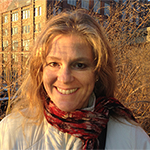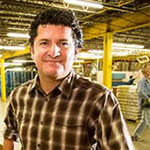
- This event has passed.
We Can’t ‘Foodbank’ Our Way Out of Hunger: From Charity to a Social Justice Funding Model
October 22, 2020 @ 11:00 am – 12:30 pm PDT
Join us for a two-part discussion of the contradictions in our food and social welfare systems, and the ways philanthropy can help abate the present-day crisis and demonstrate a long-term commitment to building health, social, environmental, and economic resilience into our food system. Each webinar will include a panel discussion followed by a funder-only strategy session.
Over the past forty years, food charity has captured the social imagination of funders and policymakers eager to resolve the contradictions of a society that produces hunger amidst plenty. Food charity has become normalized to capture the increasing number of people falling through the frayed social safety net. However, this charitable emergency feeding system in the U.S.—the largest and most sophisticated in the world—has historically never been able to meet the demand or even make a real dent in the rate of food insecurity which has hovered at 11-12% for the past 30 years.
Prior to the COVID-19 pandemic, 37 million Americans were already struggling to put food on the table, even as two-thirds of people facing hunger in the U.S. had incomes above the federal poverty line. With the number of food-insecure people in the U.S. expected to climb to 54 million by the end of 2020, it is simply not possible to ‘foodbank’ our way out of hunger. We are witnessing and, in many cases, supporting a private charitable feeding system, with no track record of eliminating hunger even before the pandemic, but which is now pushed to its limits.
The first webinar (October 22) in this series will be a discussion of the anti-hunger landscape and feature concrete examples of the connection between food insecurity and food systems. Speakers will share a newly published philanthropic call to action from the Global Solidarity Alliance, a group of non-governmental organizations, national networks, grassroots activists, and scholars concerned about hunger and poverty in wealthier countries.
Presented by WhyHunger
Resources:
Speakers:
Alison Cohen, senior director of programs, WhyHunger (moderator)

Alison is the Senior Director of Programs at WhyHunger, a grassroots support organization providing critical resources to support global social movements and to fuel community solutions rooted in social, environmental, racial, and economic justice. We are working to end hunger and advance the right to nutritious food in the US and around the world.
Joshua Lohnes, food policy director, Food Justice Lab

| Joshua studies the moral, political and economic place of food in the wider economy. He is the Food Policy Research director in the Food Justice Lab developing action research projects through data sharing tools and planning resources that support the development of food policy and anti-hunger coalitions in West Virginia and beyond. |
Robert Ojeda, chief programs officer, Community Food Bank of Southern Arizona

| Robert is the Chief Programs Officer for the Community Food Bank. He was born and raised in Arequipa, Peru, where he grew up farming at his family’s farm. He joined the Community Food Bank of Southern Arizona (CFBSA) in 2010, where he is currently Chief Program Officer. In his role, Robert oversees the CFBSA’s programmatic initiatives including hunger relief, and community health, education, and development. Robert has a master’s degree in International Agriculture and Rural Development and a Ph. D. in Adult and Extension Education from Cornell University. He has over twenty years of experience doing community organizing work in Arizona and overseas. He regularly teaches community organizing and development workshops to indigenous leaders from Latin America. |
Shakara Tyler, Detroit Black Community Food Security Network

| Shakara Tyler is a returning generation farmer, educator and activist-scholar who engages in agroecology, food sovereignty, and climate justice as commitments of abolition and decolonization. She obtained her Ph.D. at Michigan State University in Community Sustainability (CSUS) and works with Black farming communities in Michigan and the Mid-Atlantic (PA, MD). She also serves as Board President at the Detroit Black Community Food Security Network (DBCFSN) and a board member of the Detroit People’s Food Co-op (DPFC). |